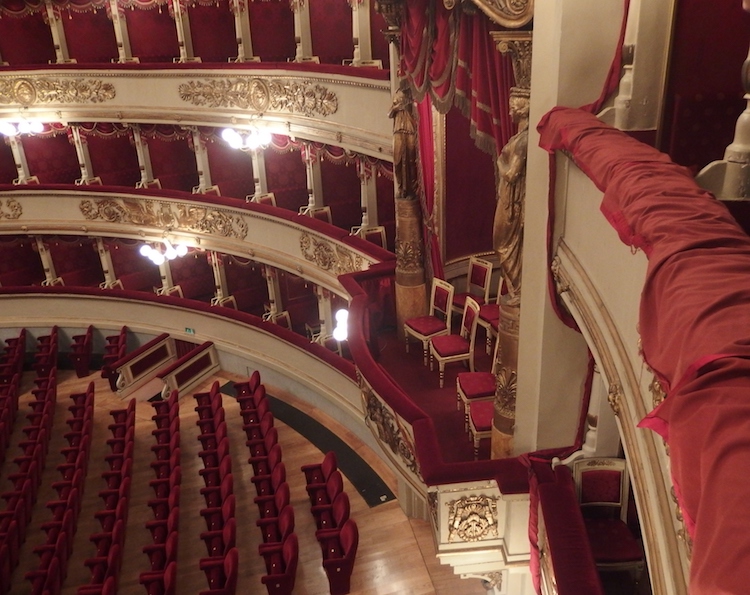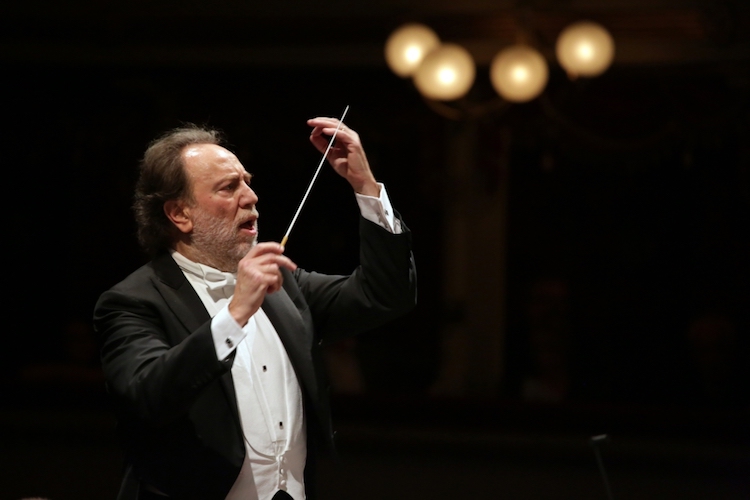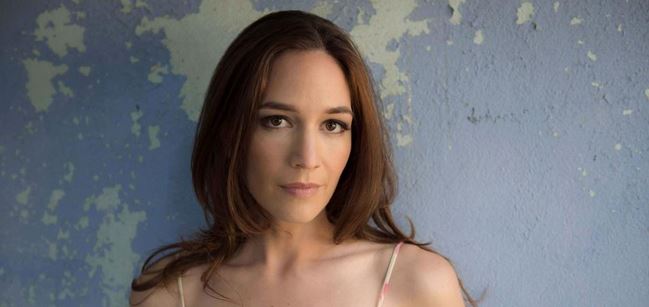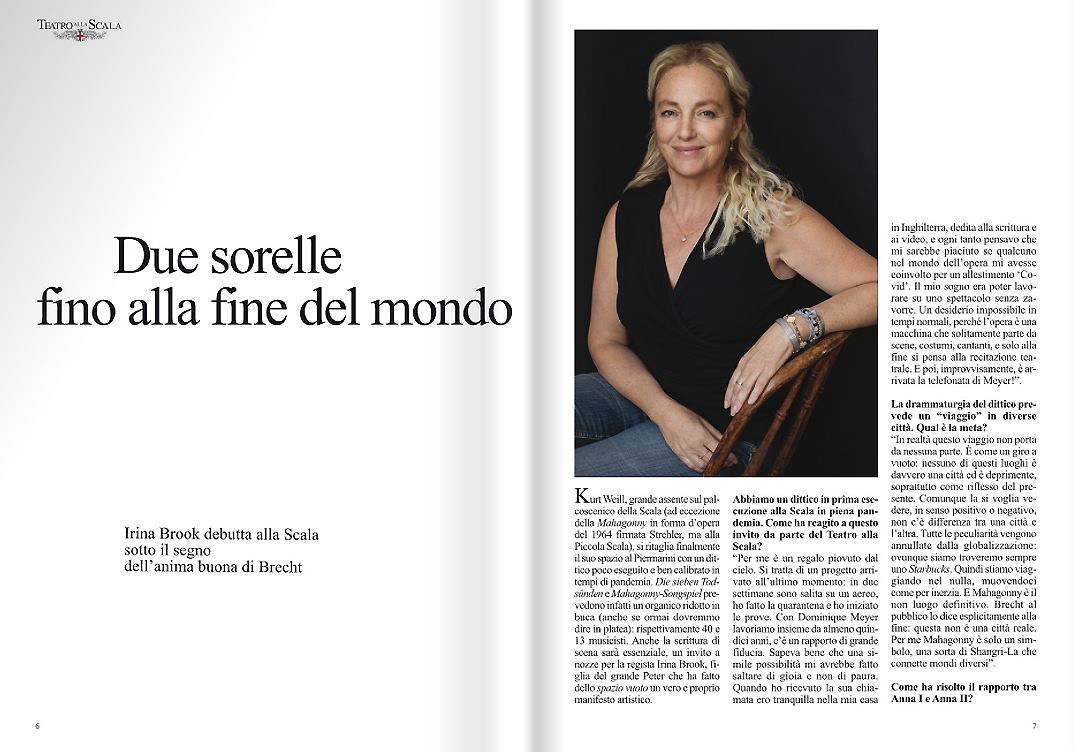The former TNN director has been invited to mount a Brecht and Weill diptych at one of the world’s most prestigious opera houses
Suppose they gave an opera and nobody came… but everyone were glued to their RaiPlay stream instead. This will be the case on March 18 at 8 pm CET when Irina Brook debuts at Teatro alla Scala, presenting her adaptation of Die sieben Todsünden (“The Seven Deadly Sins”) and Mahagonny Songspiel, one of the masterpieces of 20th-century musical theatre. Under her artistic direction, with Riccardo Chailly at the conductor’s stand, and starring Kate Lindsey and Lauren Michelle, Kurt Weill and Bertold Brecht’s satire, will be performed without a live audience but is still bound to be a street-sweeper.
“The invitation to direct the Weill double bill came as a gift from heaven”, Irina Brook remembers the phone call from Milan just a month ago. It reached her in her home in the hilly English countryside where she is currently staying. In fact, the former director of the Théâtre National de Nice (2014-2019) had been dreaming of mounting a play or an opera without the usual ballast of décor or costumes in these pandemic-stricken times – impossible to realize under normal circumstances.
And Universe listened and granted her wish in the form of a phone call from Milan. Within just two weeks she had jumped on a plane, sat out mandatory quarantine, and plunged into work. Creating magic out of nothing, and turning a bare space into a dreamy theatre set is her forte. “It’s Brecht/Weill, and times are hard, so it seems entirely appropriate to make a set out of recycled props…my favourite way…but who ever imagined I could do this at La Scala de Milan?”, Irina marvels.
Her musical partner in this venture is a fine connoisseur of Brecht and Weill: conductor Riccardo Chailly is among the Maestros with the most extensive and profound knowledge of the 20th century repertoire. His curiosity and passion without ideological barriers applies with the same intensity to the historical avant-garde and to authors such as Gershwin, Puccini, and Mahler. La Scala is home for the Milan native but many years of living and working in Germany (1980-1988: Music Director of the Berlin Radio Symphony Orchestra, 2005-2016: head of the Leipzig Gewandhaus Orchestra) have given him a thorough knowledge and understanding of the complexities of German language, music, and history.
Die sieben Todsünden is a short opera in seven scenes (nine movements, including a Prologue and Epilogue) commissioned in 1933 by a French ballet group. An essential composer of the musical and theatrical panorama of the 20th century, Kurt Weill possesses an unmistakable sound universe that echoes the cabarets and streets of Berlin in the 1920s and early 30s and mellows Bertolt Brecht’s sharp tongue.
Brecht was not Weill’s first choice – he would have preferred to work with Jean Cocteau but the French artist was too busy. So, willy-nilly, he turned to Brecht with whom he had worked in the past. The two men had a complicated relationship but the collaboration would prove a success: A contemporaneous critic remarked that, ‘Brecht’s libretto strips bourgeois morality bare. Weill’s music, keen, clear and precise, is tender without being sentimental, at once compassionate and critical.’
At its premiere in Paris in June 1933 – produced and choreographed by George Balanchine and starring Lotte Lenya, muse to both Weill and Brecht – the biting satire got mixed reviews. While the French audience met the work with bewilderment (not least because it was sung entirely in German), German émigrés living in Paris considered it ‘a grand evening.’ Either way, the criticism of capitalism at the core of the piece was hard to understand during those years. Today, the topic has lost nothing of its relevance – in fact, it may be more pertinent than ever: Lust, Gluttony, Greed, Sloth, Wrath, Envy, and Pride are the plague of our times. And yet, they can be turned into virtues, looked at from the right angle.
https://www.facebook.com/irinajanebrook/videos/10157590496866510
The heroine of Weill’s original story is Anna I (who sings) and Anna II (who dances) – two facets of one personality. At the behest of her family, she travels to different American cities in order to make enough money to build a little house on the banks of the Mississippi. In each city, she encounters a different deadly sin, and Anna I (the practical side) rebukes Anna II (the artistic side) for engaging in sinful behaviour–that is, behaviour which hinders the accumulation of wealth.
But in the early 21st century, is that whirlwind trip through these seven cities really still of relevance? Irina Brook doesn’t think so. With a Starbucks at every street corner today, globalization has cost cities their individuality, she says. True to her “eco-hippie” label acquired in Nice, her interpretation of the story takes place after an ecological disaster. Two sisters got stranded on a remote island, flooded with plastic waste. They reminisce about past adventures but one of the girls (Anna II) is too traumatized to talk and expresses herself through dance. This is an opera with a bleak outlook to the future. But Irina Brook manages to find poetry and lightness even in gloom and apocalypse.
The complementary Mahagonny-Songspiel is a “small-scale ‘scenic cantata” written by the same composer/dramatist duo in 1927 as one of a series of very short operas for performance that summer. There is no dialogue or character development. The original version is loosely based redux of the Weill-Hauptmann-Brecht opera Aufstieg und Fall der Stadt Mahagonny. Of course, it also gets the Brook treatment. “Mahagonny is the ultimate No Man’s Land, a symbol or a Shangri-La that connects different worlds”, Irina Brook says. “I have linked the two pieces so as to make a strong social eco statement about desperate characters stuck together on a dystopian island at end of the world (Mahagonny), all centred around two penniless girls who have wandered through America, living in the streets, trying to make a buck or two.”
- Kate Lindsey – credit Rosetta Greek
- Lauren Michelle courtesy Teatro alla Scala
Both works are performed by the same cast. The two Annas are perfect picks – young, modern, energetic, sensitive and strong at the same time. Kate Lindsey in the role of Anna I is a perfect choice: Praised for her “luminous and intelligent singing” and electric acting performances, the American mezzo soprano is the quintessential modern opera star in the world of classical music. Her alter ego on stage, Anna II, is played by fellow American Lauren Michelle, a multiple-award-winning soprano who is at home on international stages, and also has considerable talent as an actor.
An opera in streaming rather than in a spectator-packed theatre is a new experience for Irina Brook. She sees it as an opportunity to reflect about the quantity of excess work that goes into the gestation, labour, and birth of a show… making it a child that makes it hard to let go of. This project at La Scala under the current restrictions helps her to focus on what really matters. ”Here I can concentrate on the rehearsals, which is the most creative part, and experience this process as a laboratory, keeping the result in mind but without the anxiety of a premiere at la Scala,” Irina Brook explains.
https://www.facebook.com/irinajanebrook/videos/10157609242446510
In these current times, cultural events in most parts of the world are reduced, sporadic, or non-existent. Not so at the venerable Teatro alla Scala which offers a programme where one highlight chases another, streaming on RAIplay. Sadly, the geo-restricted channel does not officially offer the opportunity to view shows from outside Italy but there are free and legal VPNs that can help.
Is Irina Brook doing well in her post-TNN life? Yes, she is very happy using her time wisely and creatively, and working on transitioning from stage plays primarily into opera. During lockdown she also taught herself to make videos (both of the ones shown here are hers). She still spends a good deal of time in France and is never far from a director’s chair somewhere around the world, ready to sprinkle Brookian magic and sparkle on a production: Her upcoming engagements include a return to the Vienna State Opera and the world premiere of her interdisciplinary installation The House of Us/Hamlet in Japan and Italy.
Brecht and Weill at La Scala, March 18 at 8 pm, RAI streaming
Die sieben Todsünden
Conductor Riccardo Chailly
Director Irina Brook
Cast
Anna I – Kate Lindsey
Anna II – Lauren Michelle
Brother Elliott – Carlton Hines
Mother – Andrew Harris
Father – Matthäus Schmidlechner
Brother – Michael Smallwood
Actor – Martin Ilunga Chishimba
Dancer – Matteo Gavazzi
Mahagonny-Songspiel
Conductor Riccardo Chailly
Director Irina Brook
Cast
Jimmy – Andrew Harris
Bobby – Elliott Carlton Hines
Billy – Michael Smallwood
Charlie – Matthäus Schmidlechner
Jessie – Lauren Michelle
Bessie – Kate Lindsey
Actor – Martin Ilunga Chishimba
Dancer – Matteo Gavazzi
All photos as credited; lead image by Sophie Petit; photo of Teatro alla Scala by Palickap – Own work, CC BY-SA 4.0; video credit @irinajanebrook; photos of Ms. Lindsey and Ms. Michelle courtesy Teatro alla Scala








Leave a Reply